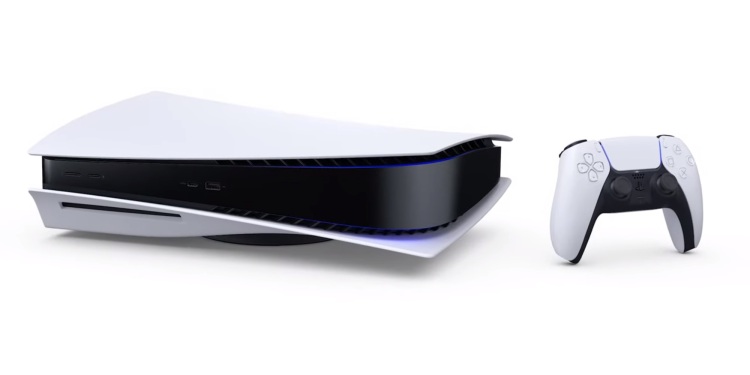As I hinted at last time, video game prices may be going up when the next generation of home consoles launch later this year. Currently, brand-new video games cost $59.99 in the USA and £49.99-£54.99 in the UK, but this could rise significantly – potentially hitting $69.99 in the US, with a comparable rise in the UK to £59.99-£64.99. If prices go up in one market, it seems a sure thing they’ll rise elsewhere as well, so we mustn’t be fooled into thinking this is a US-only issue.
It’s felt for a while as though games companies were playing a long game of “chicken” when it comes to being the first to announce a price hike. No company wanted the criticism that would inevitably come with going first, but 2K Games could wait no longer and announced that the price for the Xbox Series X and PlayStation 5 versions of their basketball game NBA 2K21 would be $69.99 in the United States. Now that the proverbial dam has a crack, I expect the whole thing to come crashing down as other major publishers follow suit. While at time of writing only NBA 2K21 is priced this way, it really feels like an inevitability that many other next-gen titles will join it.

Video game prices have been static for years. Prices rose when the PlayStation 3 and Xbox 360 were launched, but since then there hasn’t been any change – at least not to the price of the basic version of games. In 2005-06, downloadable content and in-game microtransactions were rare – DLC primarily consisted of large-scale expansion packs, and microtransactions, where they existed at all, were mostly just in massively-multiplayer online games. The gaming landscape has changed significantly since, and many games today – even those that retail for the full-price of $59.99 or £54.99 – still have in-game marketplaces, in-game currencies, microtransactions, single-use items for purchase, lootboxes, and myriad other ways to vacuum up cash from players. Many of these systems debuted in mobile games and free-to-play titles, but they have become commonplace in full-priced games too. So while it’s true that the surface price for video games hasn’t changed in almost 15 years, in order to get a complete game it often costs far more than that initial offering.
Some games take this to extremes. I’ve written before about Civilization VI, a turn-based strategy game for PC that I greatly enjoy. The base game costs £49.99 when not on sale, but in order to buy the complete game including all of its DLC packs – some of which consist of only a single new faction and a small number of missions – costs a whopping £144.91 if you were to buy it on PC without any discounts. And that’s not even the worst example: Europa Universalis IV, another strategy title, would cost over £300 to purchase the full game plus all of its DLC. This issue isn’t unique to strategy games either: Assassin’s Creed Odyssey costs over £95 to buy its “Ultimate” edition, Shadow of the Tomb Raider costs over £80 for its “Definitive” edition, and the “Ultimate” edition of FIFA 21 can currently be pre-ordered for the limited-time special offer price of £89.99. So it’s definitely the case that the “basic” price of video games may have been static, but buying a complete game has cost well over $59.99 or £54.99 for years.

If you looked at my article about this year’s Steam Summer Sale you’ll recall that I said sales like that make PC gaming much more affordable. And that is true – aside from Animal Crossing: New Horizons and The Last of Us Part II, I haven’t paid full-price for a video game in a long time. It’s only on rare occasions, where a title is an immediate must-buy for me, that I’m willing to consider paying full price. But on consoles in particular, where sales like those on PC are less frequent and less generous, many people are stuck paying full price or close to it for most games they purchase. A £10 increase on a £54.99 title represents a price hike of 18%; a $10 rise on a $59.99 title is similar at over 16%.
If it were a black-and-white choice between paying a higher price for a complete experience versus having to buy DLC and navigate various editions, I think many gamers would be okay with the price rise. It would streamline the buying process, it would mean any game purchased would be complete without needing to buy expensive add-ons down the line, and it would be generally seen as an improvement. But no one is seriously entertaining the possibility of that being the case. The basic price of games will rise, and if we’re incredibly lucky, the prices of DLC packs and special editions will just stay the same. Those things won’t disappear because prices go up. In fact, what seems more likely to happen is that some games will hike up the prices of DLC and in-game content as well.

I’m not unsympathetic to companies who put up their prices after keeping them the same for well over a decade. But video gaming as a hobby has been growing steadily for years, and with it, the profits of games companies have grown too. While the new console generation may seem like good cover for a price hike and even a good excuse, there’s no actual reason for it. Developing a game for the Xbox Series X and PlayStation 5 doesn’t cost substantially more than developing a game for the Xbox One and PlayStation 4, and when games already bring in money by the bucketload it’s hard to justify a price hike.
After the financial crash of 2007-08, it took a long time for the economy to recover. In the UK, it’s only in the last couple of years or so that austerity policies had begun to be relaxed. The coronavirus pandemic has had a massive impact on the economy all over the world, and some economists are suggesting the longer-term effects will make 2008 look like a walk in the park. Even if that’s an exaggeration, many people are not in a good financial situation at the moment, which makes it an even worse time for an arbitrary and unnecessary price rise.
However, all that being said, if the big companies of the games industry go ahead with plans to raise prices on next-generation titles, there really isn’t much we can do about it. Some have suggested boycotting games using that price, but very few online-organised gamer boycotts have ever accomplished anything. If 2K Games uses this pricing model for its other titles and other big companies follow suit, practically all new games released for the Xbox Series X and PlayStation 5 will be in that $69.99 and £64.99 price bracket. People who bought new consoles will have no choice but to buy games at that price if they want to have anything to play, and with sports games like NBA 2K21 in particular being exclusive licensed titles, it isn’t possible to shop around or go elsewhere. If you want a licensed basketball game with your favourite team and players on your new console, it’s NBA 2K21 or nothing. We need only take a cursory glance at history to see how any company that has a monopoly can get away with charging whatever it wants for that product.

As the games industry marches ever closer to an all-digital future, that extra £10 or $10 per title will all go straight back to the company. Physical game shops – like Game here in the UK or Gamestop in North America – have been on incredibly shaky ground for years; if the coronavirus pandemic and months of closure hasn’t killed them off they won’t last much longer. With no need to share the extra money their games bring in with shops – as well as needing to produce an ever-decreasing number of physical copies of games anyway – companies look set to enjoy a significant increase in profits on a per-unit basis. If games were profitable at $59.99 or £54.99, they’re now raking in potentially 16-18% more revenue – and that’s all pure profit.
It’s true that a significant amount of money earned by big games companies is re-invested in making new games, and we shouldn’t ignore that as it potentially means bigger budgets for some titles – hopefully leading to better and more polished experiences. But a lot of that money goes to shareholders and investors, as well as to highly-paid CEOs and managers. Raising prices for consumers at a time of international crisis to reward a tiny number of shareholders, investors, and corporate leaders is pretty unfair.
At the end of the day, across-the-board price hikes are going to happen. 2K may have gone first, but sooner or later others will follow. Maybe the backlash – though it seems fairly muted right now – will be offputting in 2020 given all the issues in the global economy, meaning some companies hold off. But even if they wait until 2021 or 2022, the days where games cost $59.99 or £54.99 are numbered.
All titles mentioned above are the copyright of their respective studio and/or publisher. This article contains the thoughts and opinions of one person only and is not intended to cause any offence.

